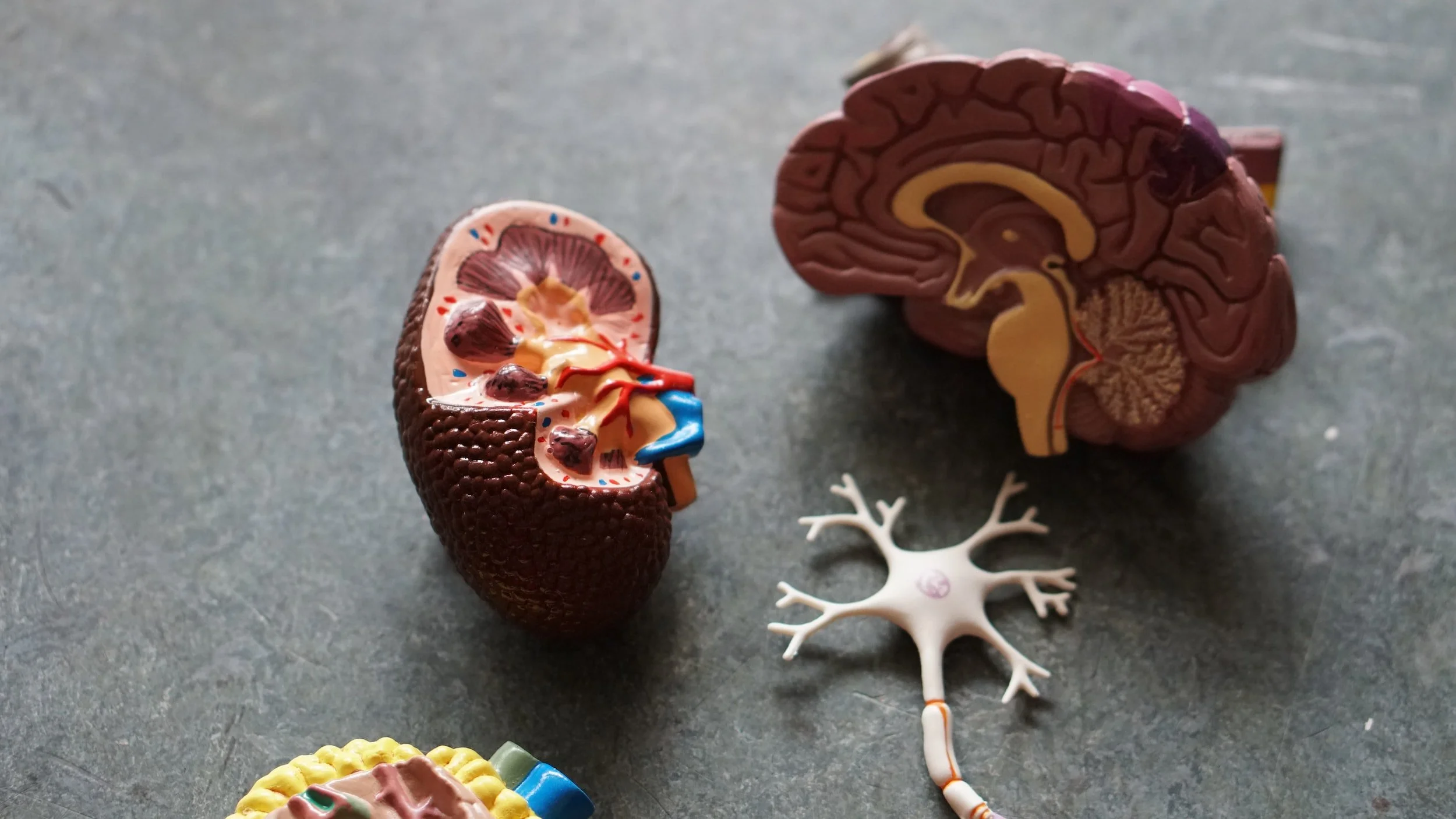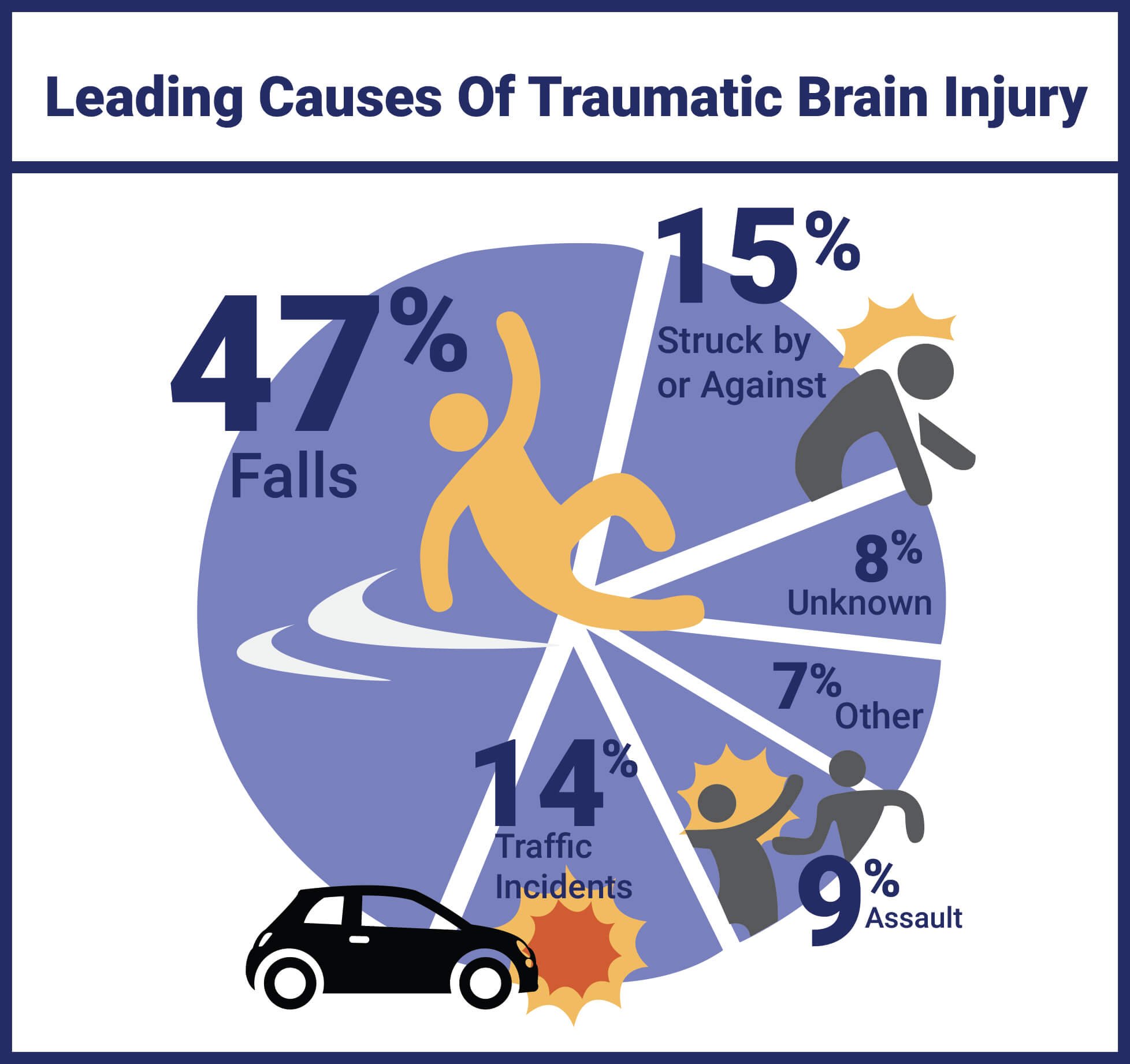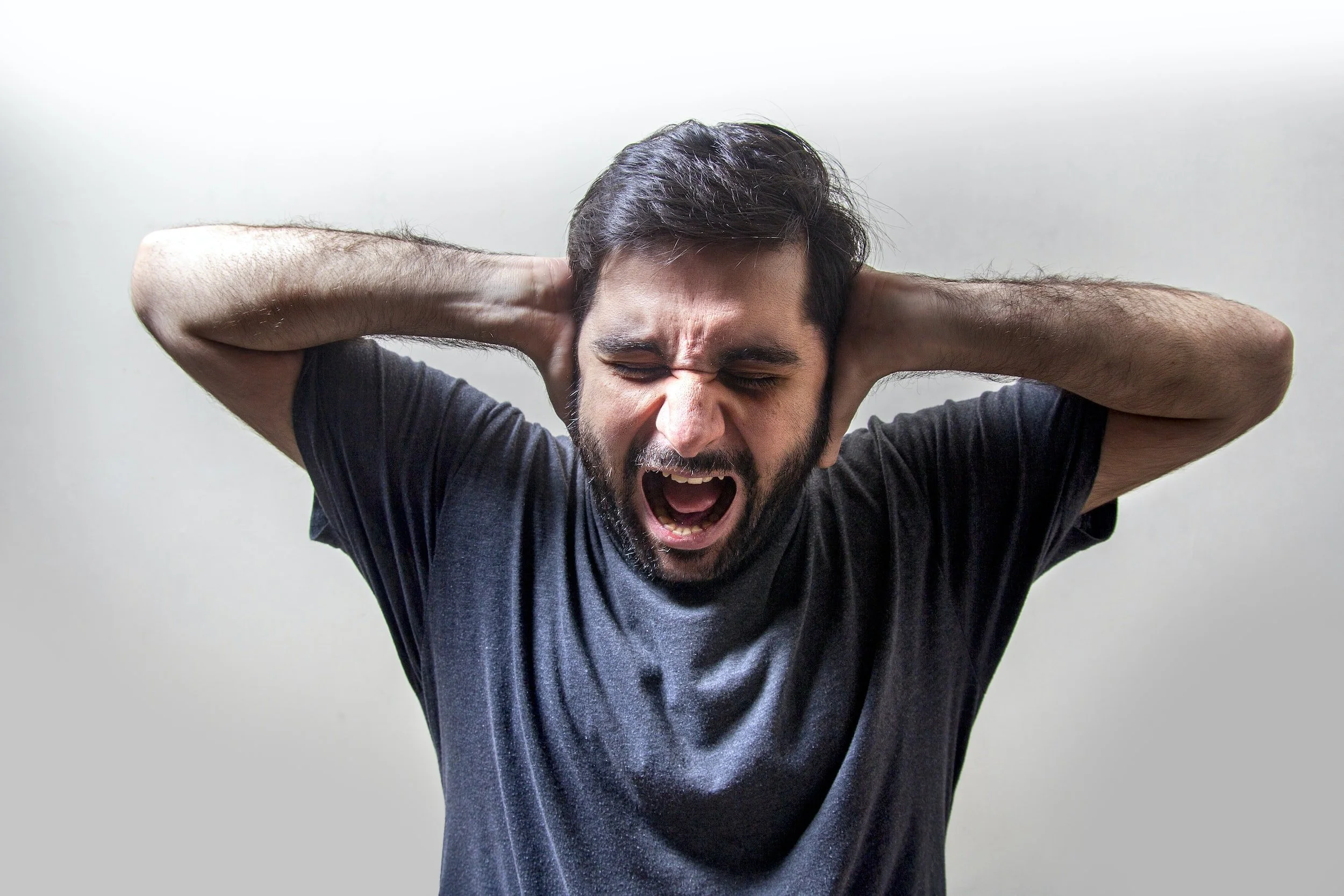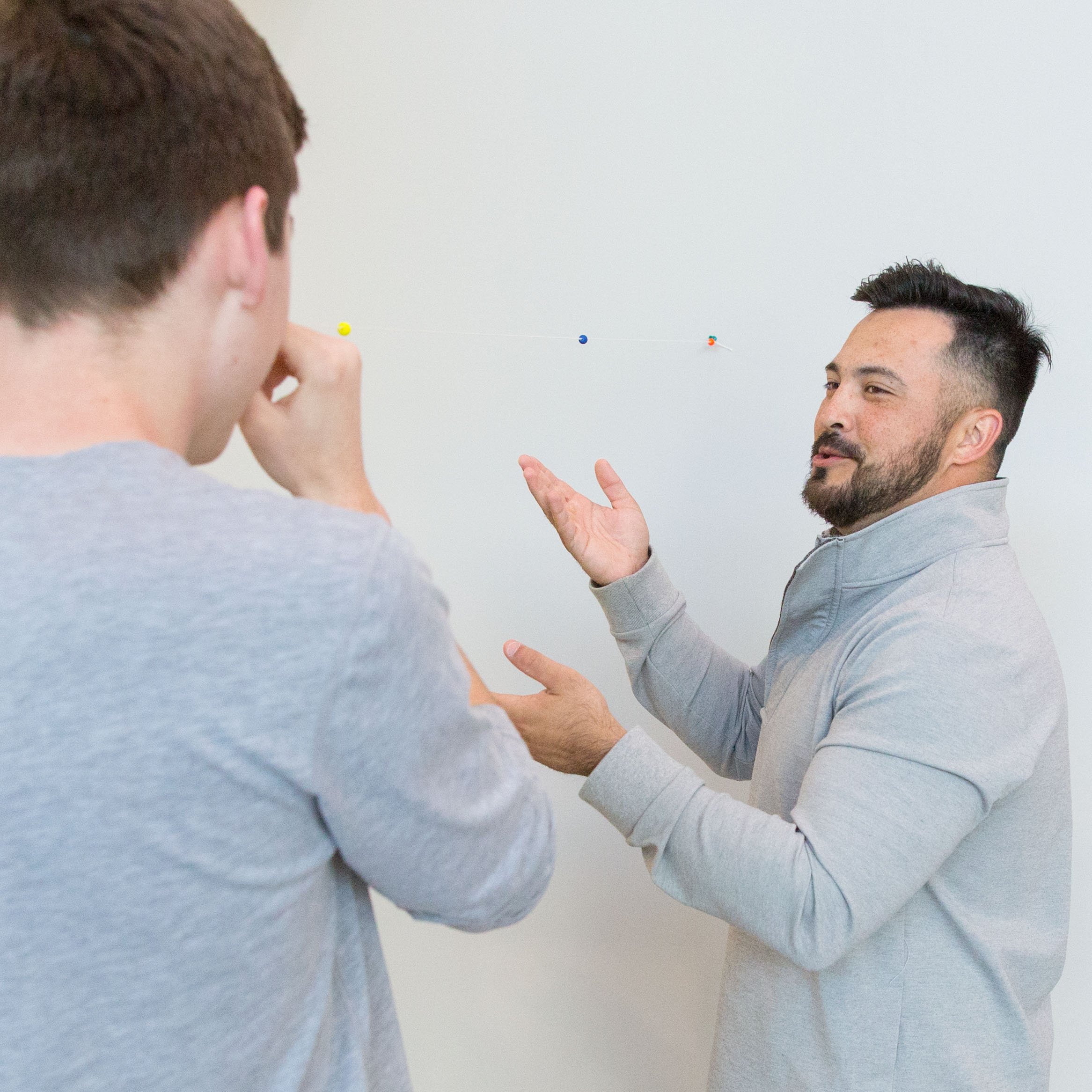What is a Traumatic Brain Injury?
Traumatic brain injury (TBI) is a term that describes a spectrum of injury and associated symptoms resulting from a violent blow or jolt to the head or body. Mild traumatic brain injury (concussion) can impact your brain cells temporarily or can become chronic and have lasting symptoms that could become permanent if early treatment and intervention is not obtained. More-serious traumatic brain injury can result in bruising, torn tissues, bleeding and other physical damage to the brain. These injuries can result in long-term complications and even death.
At Aptiva Health, Dr. Manderino, Dr. Williams, Dr. Huhn, and our Sports Medicine team treat concussions and mild traumatic brain injuries (TBI) related to:
Sports
Recreational Activities & Hobbies
Falls
Work Related Incidents
Motor Vehicle Collisions
There are several different types and grades of TBI:
Mild concussion (mTBI): Concussions are the most common type of TBI. Three out of 4 TBIs every year are concussions. These mTBIs can include brief alterations of consciousness such as feeling “dazed” or loss of consciousness for less than 30 minutes. People who have an mTBI can experience confusion for about one day, which is different from difficulties with attention or memory.
Moderate TBI: this type of head injury is associated with loss of consciousness for over 30 minutes but less than one day. Confusion can last for up to one week.
Severe TBI: individuals with this type of head injury lose consciousness for over one full day. These injuries are typically associated with changes on head CT or brain MRI.
Uncomplicated TBI: Head CT/brain MRI are normal, regardless of mild, moderate or severe grade.
Complicated TBI: Head CT or brain MRI show changes, such as bleeding.
Closed: Most TBIs are closed. A closed TBI means an outside force causes a blow or jolt to the head that did not penetrate the skull. This impact injures the brain, causing it to swell.
Open: Healthcare providers may call open TBI a penetrating TBI. This injury occurs when a bullet, knife or something else goes through the skull. If the object goes into the brain, it directly damages brain tissue.
Nontraumatic: Also known as a hypoxic/anoxic brain injury. Some TBIs aren’t from trauma. They can result from strokes, seizures and events like choking and near-fatal drownings.
What Can Cause a TBI?
When you take a sudden hit to your hit or body with enough force, your brain may experience changes in chemical and energy use as a way to compensate for the injury. These changes can result in headaches, light/sound sensitivity, and confusion. In mild TBIs, these changes can be short and may not cause permanent damage to the brain. However, with more severe injuries, typically with much higher forces, changes to the brain can last longer and result in damage to the brain cells. These effects can cause the brain to swell and expand inside the skull. The swelling can lead to even more brain damage.
According to the Center for Disease Control, people most commonly get TBIs from a fall, firearm-related injury, motor vehicle crash, assault or other event where there is a direct blow to the head or body.
Research shows that:
Falls lead to nearly half of the TBI-related hospitalizations
Motor vehicle collisions and assaults are other common ways a person may get a TBI
What are the Symptoms of a TBI?
Generally speaking, the more severe the head injury, the longer the post-concussion symptoms may last. Symptoms may include:
Dizziness
Speech difficulties
Repetitive speech
Difficulty with thoughts
Noise sensitivity
Irritability
Depression
Anxiety
Light sensitivity
Memory difficulties
Nausea
Check out our concussion flyer for more info!
Some mild TBI and concussion symptoms may appear right away, while others may not appear for hours or days after the injury. Symptoms generally improve over time, and most people with a mild TBI or concussion feel better within a couple of weeks.
Symptoms of mild TBI and concussion may affect how patients feel, think, act or sleep
Symptoms of mild TBI and concussion are different for each person. Symptoms may change during recovery. For example, a patient may have headaches and feel sick to their stomach earlier on. A week or two after the injury the patient may notice they feel more emotional than usual or have trouble sleeping. A common complaint by love ones and family members when living with someone suffering from symptoms related to a TBI can be that they “aren’t themselves” or that they become more agitated or aggressive than prior to the event that led to the TBI.
How is a TBI diagnosed?
Early diagnosis, intervention, and treatment is integral to a successful and expedited recovery following a TBI. According to research, patients who do not see a doctor specializing in concussions within the first week after injury are nearly 10 times more likely to have a prolonged recovery. Even older injuries with lingering symptoms can be treated with appropriate specialty care.
At Aptiva Health, our evaluation and treatment includes:
Thorough Evaluation of mTBI (Concussion) Symptoms
Assessment of Cognitive Functioning, Balance, and Eye Movements
Strategies for Managing Symptoms and Returning to School, Sports, and Work
Active Treatment Approaches
Advanced Imaging and Diagnostics
How is a TBI treated?
Each treatment
Vestibular Rehabilitation: Vestibular rehabilitation therapy (VRT) is a specialized form of therapy utilized to alleviate problems caused by vestibular disorders such as vertigo and dizziness, gaze instability, and/or imbalance and falls.
Rest. Talk to your doctor about how long to rest after a TBI. Depending on the type of TBI, some may need to rest for days or weeks before going back to typical activities. More severe head injuries may require longer periods of rest.
Neurocognitive Rehabilitation: Physical, psychological, and behavioral therapies utilized to improve or restore function and activities following a TBI.
Hyperbaric Oxygen Therapy: HBOT accelerates the body's natural healing process by increasing the amount of oxygen in the blood. The body needs oxygen to heal itself. Many injuries and illnesses involve the lack of oxygen-rich blood, which is then unable to travel to affected areas of the body. Getting more oxygen to the tissues that need it can help the body heal, fight certain infections, and treat a variety of conditions, including TBI.
Life after a TBI
The road to recovery from a TBI is variable and individualized. Recovery is heavily reliant on the severity, cause and type of TBI suffered. Fortunately, most people with mild TBIs are expected to improve and return to their pre-injury functioning within days to a few months. However, Some people with mild TBI can experience a prolonged recovery and difficulty returning to pre-injury activities if treatment is delayed or unavailable.
Moderate to severe TBIs can cause more significant changes to a patient’s thinking and behavior. People with severe TBIs can experience lifelong changes and may needed prolonged treatment and modifications to their activities.
There are several different factors that can influence someone’s recovery.
Additional injuries: sometimes individuals experience other injuries at the same time as their TBI. For example, an individual who was in a car accident may have a TBI and a shoulder injury. In these types of situations, an individual may experience additional difficulties with pain or treatments needed for the other injury. This can cause additional stress in adjusting to changes related to both their head injury and physical injuries.
Age: Sometimes older adults have a slower recovery than younger adults.
Past TBIs: Individuals that had multiple head injuries in a short period of time may have more difficulty in their recovery. This is not always the case and individuals who sustained multiple mild TBIs and were able to fully recover can still experience a good recovery from additional head injuries.
Stress: Individuals who experience emotional changes and stress after their head injury often have more difficulty recovering. Sometimes emotional symptoms can even appear as physical symptoms. It’s important to work with your doctor to make sure that a physical symptoms that last longer than anticipated aren’t emotional symptoms. Reassuringly, counseling and medications are effective in treating these types of symptoms.
Support: People with strong support from family and friends can have shown to have quicker recoveries from mild to moderate TBIs.








